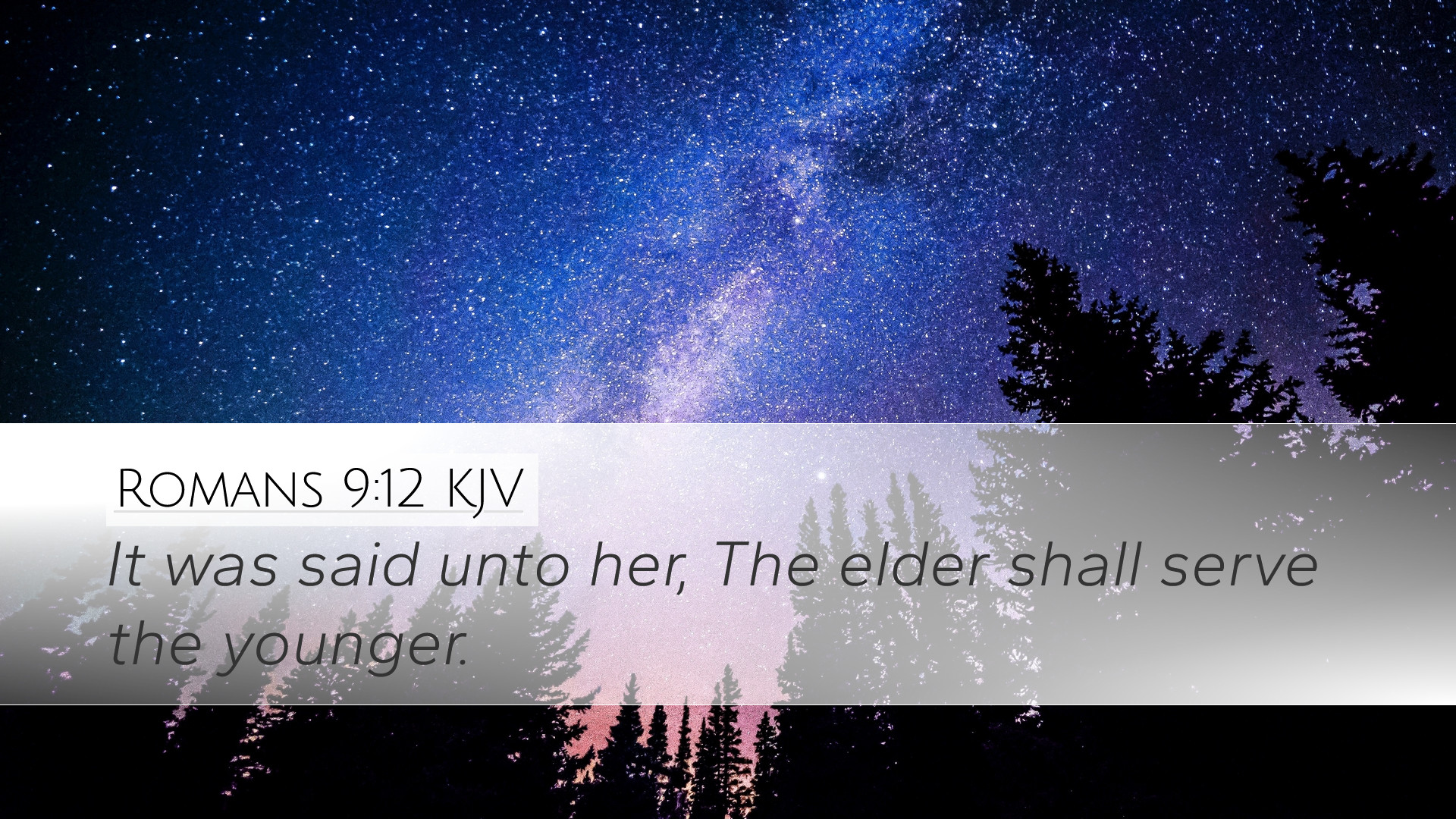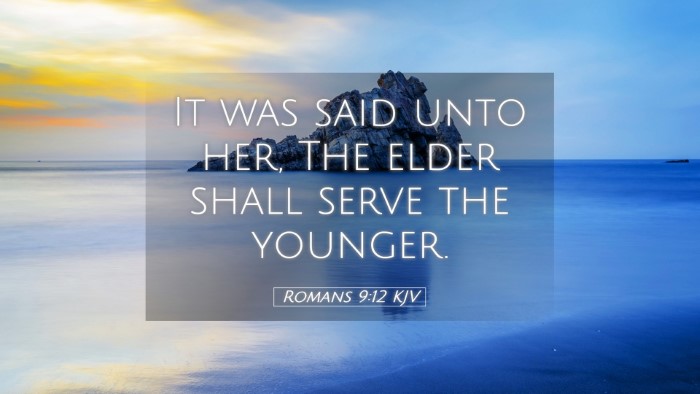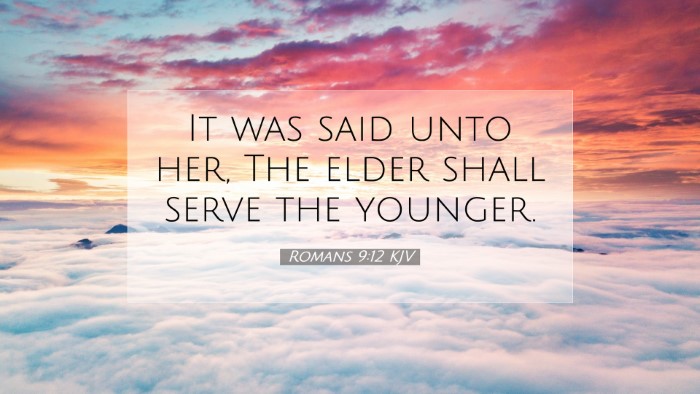Commentary on Romans 9:12
Romans 9:12: "It was said to her, 'The older will serve the younger.'
This verse is pivotal in the argument that the Apostle Paul presents in Romans 9 regarding God's sovereign choice and election. The context surrounds the struggle between Jacob and Esau, two siblings whose destinies are distinctly ordained by divine will.
Historical and Theological Context
The tension between Jacob and Esau is emblematic of the divine election theme that Paul explores throughout this chapter. Paul draws upon the Old Testament, specifically Genesis 25:23, where God reveals to Rebekah that her younger son Jacob will take precedence over her older son Esau. This servitude is deeply rooted in the covenantal promise that God established with Abraham, Isaac, and extends to Jacob.
Insight from Matthew Henry
Matthew Henry notes that God's declaration regarding Esau and Jacob serves to illustrate the principle of His sovereign choice, emphasizing that divine selection is not based on human lineage or merit. Jacob's being chosen over Esau is consistent with the overarching biblical theme of God’s grace and favor resting on the unlikely and unexpected.
- Divine Sovereignty: Henry stresses that God's will is paramount and that He chooses whom He wills, independent of human criteria.
- Grace Over Merit: The choice of Jacob reflects God's grace, not according to works or lineage, but through divine purpose.
Insight from Albert Barnes
Albert Barnes emphasizes the implications of this verse for understanding God’s justice and mercy. He argues that the statement underscores the fact that God's choices do not correspond with human expectations, highlighting the mysteries of divine providence.
- God's Justice: Barnes explains that while Esau was the firstborn and traditionally entitled to a special blessing, God’s choice of Jacob signifies that human conventions do not bind God’s sovereign plan.
- Mystery of Election: The verse illustrates the profound mystery surrounding divine election and the complexities of God’s purposes.
Insight from Adam Clarke
Adam Clarke approaches this passage with a vantage point focused on the broader implications for God's covenant people. He interprets the phrase "the older shall serve the younger" as a demonstration of God’s plan for the nation of Israel, where the lesser (in societal terms) is chosen to lead.
- Redemptive Plan: Clarke discusses how this divine choice sets the stage for the unfolding of God’s redemptive work through Israel, culminating in Christ.
- Application for Believers: He encourages believers to recognize their identity in Christ, arguing that this election extends to all who are in faith, regardless of their past.
Theological Implications
Romans 9:12 brings forth key theological themes important for scholars and ministry. The dialogue on predestination and divine election is both enlightening and challenging for believers. The implications can be drawn on several fronts:
- God's Sovereignty Versus Human Free Will: This verse raises questions about the extent of God's control over human history and individual choices.
- The Nature of Grace: It propels discussions on how grace operates contrary to human expectations and strives towards fulfilling God's overarching purpose.
- The Role of Israel: It contextualizes Israel's significance in God’s plan and highlights how Jacob represents the beginning of a covenantal lineage crucial to biblical history.
Conclusion
Romans 9:12 stands as a theological cornerstone for discussions on divine election, grace, and the nature of God's covenant. By examining this verse through the lenses of respected commentators like Matthew Henry, Albert Barnes, and Adam Clarke, readers are encouraged to grapple with the complexities of God’s will, ultimately leading to a profound appreciation of God's sovereignty.


